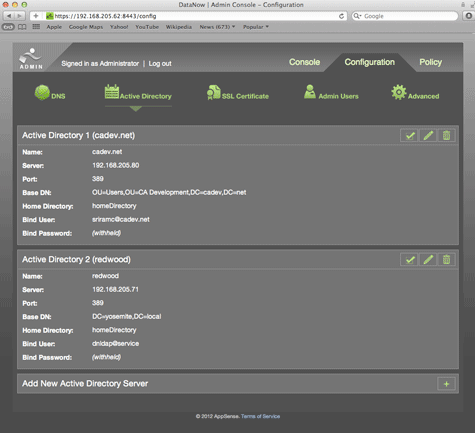Regardless of who owns the device, the biggest issue with mobile computing is finding a way to extend corporate IT policies out to the actual mobile computing device. Organizations can wind up having to support thousands of devices because it’s not uncommon for each employee to have a smartphone, tablet and notebook that at different times are going to be used to access corporate applications.
Rather than trying to manage software on each of those devices, the folks at AppSense have come up with a virtual appliance that resides on a server that essentially functions as a gateway through which mobile device users can access corporate applications. As each user accesses that gateway, the same corporate policies that have been applied to the use of those applications behind the corporate firewall are then seamlessly extended to the mobile computing device.
Launched this week, David Roussain, vice president of product marketing for AppSense, says DataNow Essentials is the next logical extension of the user management software that AppSense created for desktop virtualization environment. That software allows the IT organization to maintain all the custom changes that any user decides to make to their virtual desktop environment.
As a virtual appliance, Roussain says DataNow is a lot simpler to centrally manage. It eliminates the need for IT organizations to worry about what device any user has because the IT management policies stored in Microsoft Active Directory are applied to users rather than specific devices. In effect, DataNow Essentials acts as a virtual broker between IT polices and the users of any mobile computing device, says Roussain.
AppSense has been at the leading edge of a shift towards user-centric IT management for a number of years now. The basic idea is to apply IT management to specific users rather than thinking in terms of specific devices. In the age of bring your own device (BYOD), it’s become pretty clear that the time to take a more user-centric approach to IT management is now.



